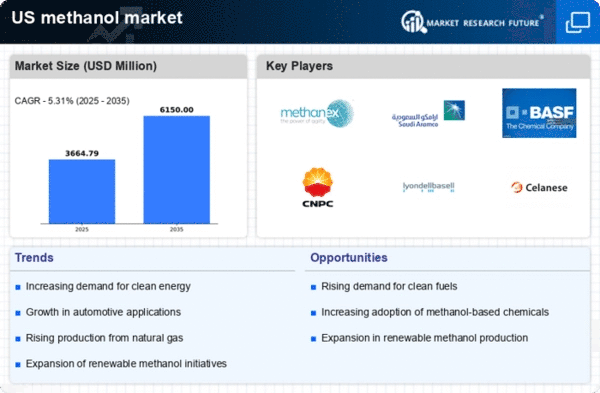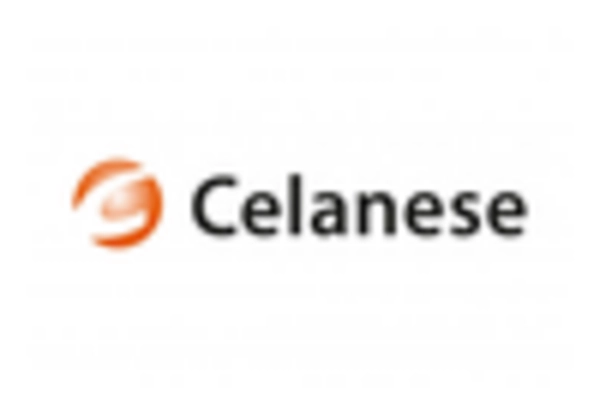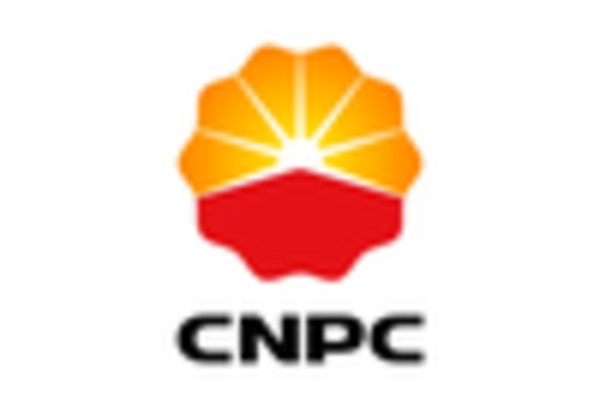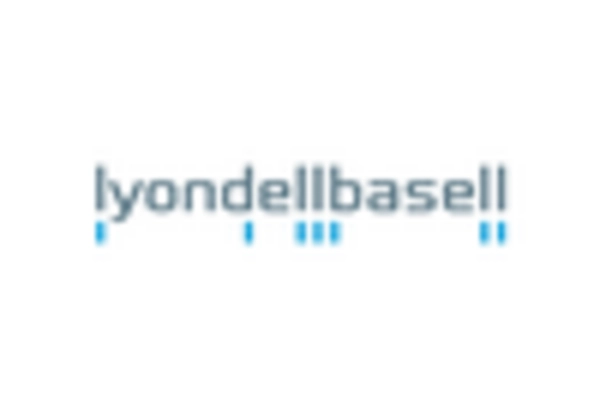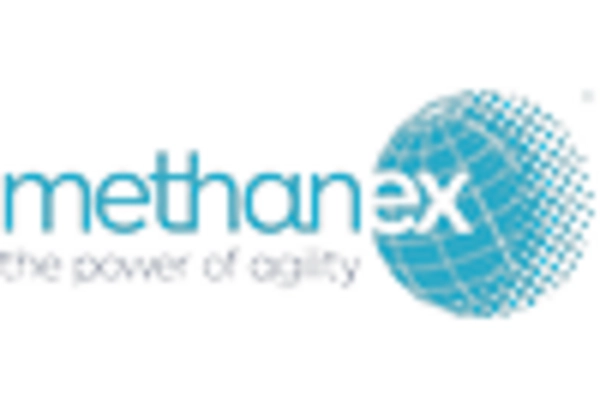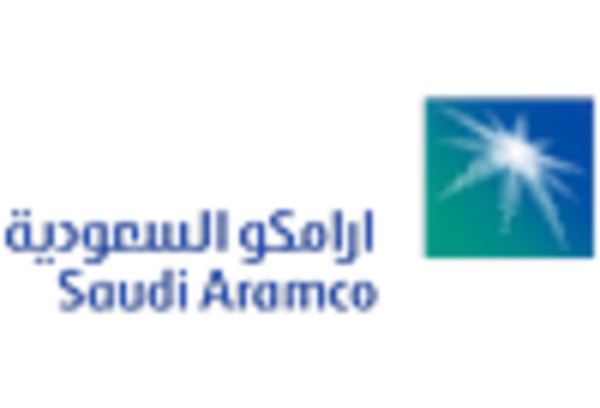The methanol market exhibits a dynamic competitive landscape characterized by a blend of established players and emerging innovators. Key growth drivers include the increasing demand for methanol as a clean fuel alternative and its applications in the production of chemicals and plastics. Major companies such as Methanex Corporation (CA), Saudi Methanol Company (SA), and LyondellBasell Industries N.V. (NL) are strategically positioned to leverage these trends. Methanex Corporation (CA) focuses on expanding its production capacity and enhancing operational efficiency, while Saudi Methanol Company (SA) emphasizes its cost leadership through large-scale production facilities. LyondellBasell Industries N.V. (NL) is actively pursuing digital transformation initiatives to optimize its supply chain and improve product offerings, collectively shaping a competitive environment that prioritizes innovation and operational excellence.In terms of business tactics, companies are increasingly localizing manufacturing to reduce transportation costs and enhance supply chain resilience. The market structure appears moderately fragmented, with a few dominant players exerting considerable influence. This fragmentation allows for niche players to thrive, yet the collective strength of major companies like Methanex Corporation (CA) and LyondellBasell Industries N.V. (NL) creates a competitive pressure that drives innovation and efficiency across the sector.
In October Methanex Corporation (CA) announced the commissioning of a new methanol production facility in Louisiana, aimed at increasing its output by 1.5 million tonnes annually. This strategic move is significant as it not only enhances Methanex's production capabilities but also positions the company to better serve the growing North American market, thereby reinforcing its competitive edge. The investment reflects a broader trend of companies seeking to capitalize on regional demand surges.
In September LyondellBasell Industries N.V. (NL) unveiled a partnership with a leading technology firm to integrate AI-driven analytics into its production processes. This initiative is poised to enhance operational efficiency and reduce waste, aligning with the industry's shift towards sustainability. By leveraging advanced technologies, LyondellBasell aims to differentiate itself in a competitive market increasingly focused on environmental responsibility.
In August Saudi Methanol Company (SA) expanded its strategic alliance with regional distributors to enhance its market reach in the Middle East and North Africa. This collaboration is crucial as it allows the company to tap into new customer segments and optimize its distribution network, thereby solidifying its market position. Such alliances are indicative of a broader trend where companies seek to enhance their competitive positioning through strategic partnerships.
As of November the methanol market is witnessing trends that emphasize digitalization, sustainability, and technological integration. Companies are increasingly forming strategic alliances to bolster their market presence and enhance operational capabilities. The competitive differentiation is likely to evolve from traditional price-based competition towards a focus on innovation, technology adoption, and supply chain reliability. This shift suggests that companies that prioritize these aspects will be better positioned to thrive in an increasingly complex and competitive landscape.


